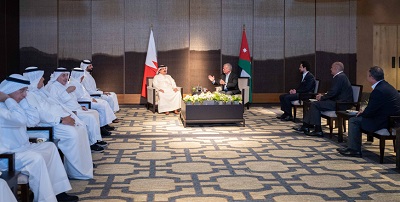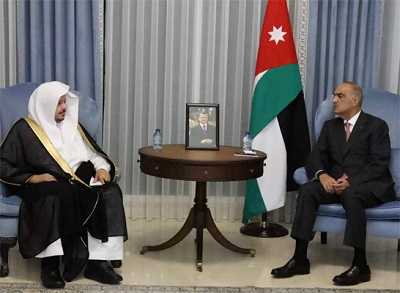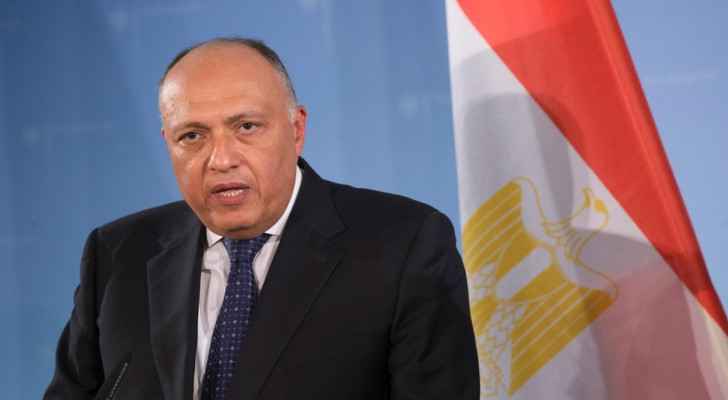Qatar: Separating ‘conspiracies’ from policies - By Hassan Al Mustafa, Al Arabiya
In 1998, the late Saudi King Abdullah bin Abdulaziz, who was then the crown prince, sent his special envoy, Prince Bandar bin Sultan bin Abdulaziz, to Libya to meet Colonel Muammar Qaddafi to discuss the Lockerbie case in order to reach a peaceful resolution with the international community. This was to ensure an end to the siege imposed on Libya.
Libya was facing hardships as people had to travel to Tripoli by land because of the air embargo imposed on Libya. William Simpson, in his book The Prince, mentions lot of these details. This eventually led to successful Saudi mediation efforts and end to the siege which had been on for years on Libya. Colonel Qaddafi honored Prince Bandar bin Sultan in the presence of Crown Prince of Saudi Arabia – at that time – Prince Abdullah bin Abdulaziz.
Only a few years after Saudi Arabia’s efforts, and in 2003, an assassination attempt plot against the then Crown Prince Abdullah bin Abdulaziz was unearthed. It was funded by Libyan intelligence, under Qaddafi’s guidance.
“The investigation was complete and all the information was available to us. Nothing was left except a judicial verdict against them,” a senior Saudi source, who had seen the file, told me, indicating that King Abdullah preferred to pardon the Libyans who conspired against him. This happened in 2005.
Qaddafi’s intentions
Despite the royal amnesty for his intelligence men Qaddafi’s intentions toward Saudi Arabia did not change. This was revealed in the tapes documenting his conversations with former prince of Qatar Sheikh Hamad bin Khalifa al-Thani and Foreign Minister Sheikh Hamad bin Jassim al-Thani, in which they were discussing the internal situation in Saudi Arabia, and how to influence it, weakening the authority of the state, and pushing them toward disintegration.
The recordings, which were broadcast on the media, are only part of more documents owned by Saudi Arabia. They only displayed some details, which explains Riyadh’s suspicions at Doha and mistrust with the behavior and promises made by Sheikh Tamim bin Hamad al-Thani.
There is mistrust between the two countries, caused by what Riyadh considers “conspiracies” emanating from Doha toward it. This is why the Qatari politicians should begin to address the problem from this point, to restore confidence between them and their neighbors in the Gulf, and stop such suspicious activities.
Qatar is an independent and sovereign state. It has full freedom in its foreign relations, political positions, and having its own opinion on regional and international issues. This is also guaranteed by the international law to Saudi Arabia and the rest of the Gulf countries.
However, even under international law, it is a “crime” to “conspire” and make secret plans to harm another country, either through financial means or by supporting fundamentalist groups.
When there is “conspiracy” hatched by one state against another, this means that politics is set aside, and that conspiracies will be in control. Doha has to pay attention to end this before it is too late.
Latest News
 King, Bahrain monarch stress need to maintain Arab coordination
King, Bahrain monarch stress need to maintain Arab coordination Security Council to vote Thursday on Palestinian state UN membership
Security Council to vote Thursday on Palestinian state UN membership Dubai reels from floods chaos after record rains
Dubai reels from floods chaos after record rains Khasawneh, Saudi Shura Council speaker discuss bilateral ties, regional developments
Khasawneh, Saudi Shura Council speaker discuss bilateral ties, regional developments Egyptian Foreign Minister condemns potential Palestinian displacement as 'war crime'
Egyptian Foreign Minister condemns potential Palestinian displacement as 'war crime'
Most Read Articles
- Senate president, British ambassador discuss strategic partnership, regional stability
- Jordan urges UN to recognise Palestine as state
- Temperatures to near 40 degree mark next week in Jordan
- JAF carries out seven more airdrops of aid into Gaza
- Safadi, Iranian counterpart discuss war on Gaza, regional escalation
- UN chief warns Mideast on brink of ‘full-scale regional conflict’
- US vetoes Security Council resolution on full Palestinian UN membership
- Google fires 28 employees for protesting $1.2 billion cloud deal with “Israeli” army
- Biden urges Congress to pass 'pivotal' Ukraine, Israel war aid
- Israeli Occupation strike inside Iran responds to Tehran's provocation, reports say